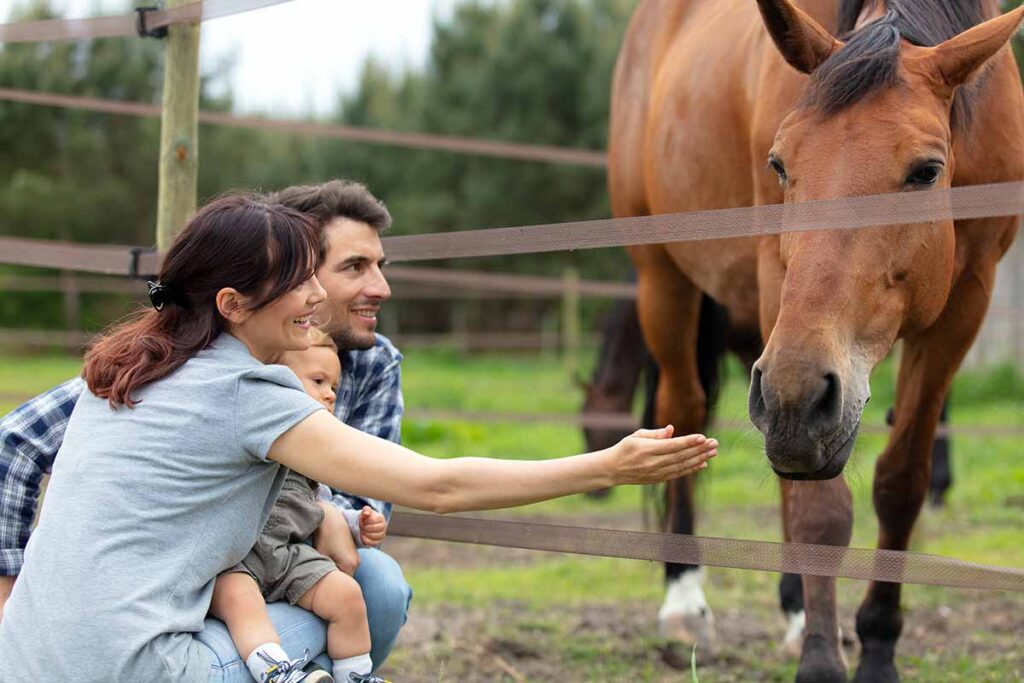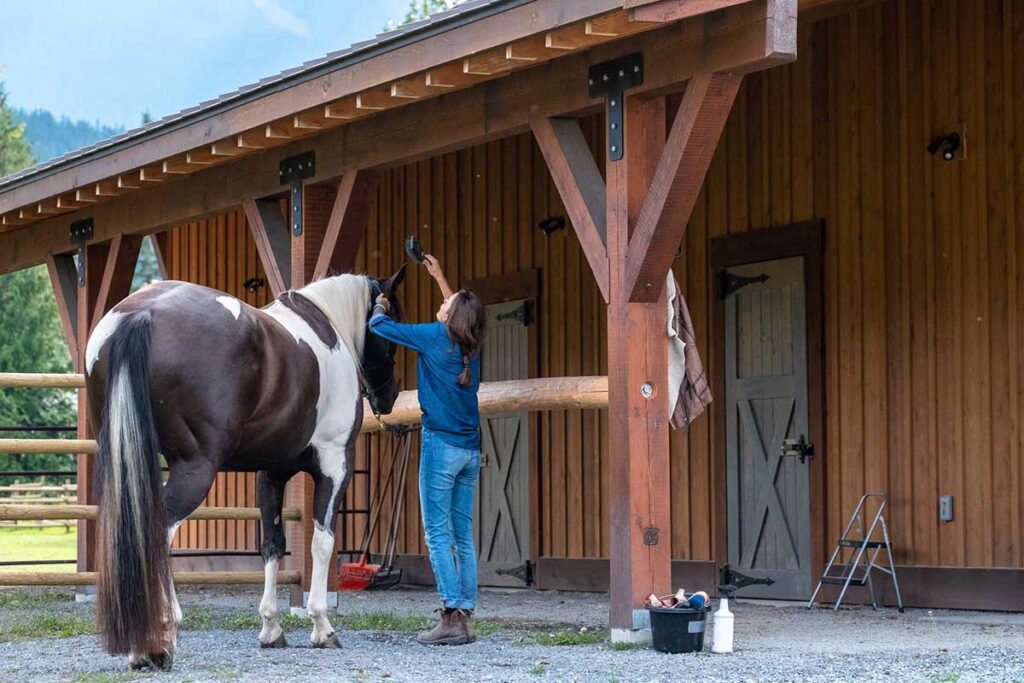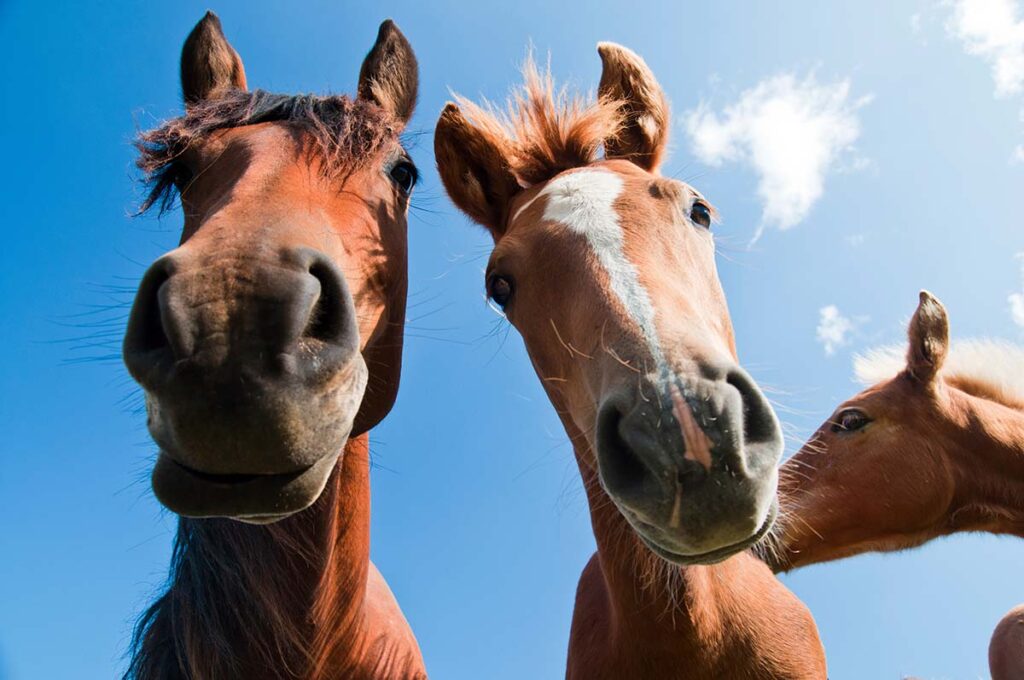Buying your first horse can be an exciting and life-changing experience. It should come as no surprise, however, that horses aren’t cheap. Budgeting for the actual cost of buying a horse can even be a bit tricky. You’re not only paying the horse’s purchase price but also the costs associated with bringing him home. In this article, we’ll list the expenses you should expect when purchasing a horse so you’ll have a clear idea of what you can expect to spend.
The Horse’s Purchase Price
A horse’s price is usually the most significant cost when buying a horse. Price ranges for horses vary dramatically depending on their breed, age, performance history, training level, and strengths. If you’re not looking for a horse with special breeding or an extensive show record, the average cost you can expect to pay might range from $1,500 to $15,000. Horses with the talent and training to succeed on a show circuit can cost tens and even hundreds of thousands more. Determine what you’re willing to pay for a horse and how fancy or rare a ride you truly need.
Note that you might pay extra fees in addition to a horse’s base purchase price. For instance, many riders work with a trainer to find a suitable horse and shepherd the trial and purchasing process. In exchange for their time and services, trainers typically charge about 10-15% of the horse’s purchase price as commission. It might be worth this fee to gain access to a trainer’s professional connections, ensure you’re dealing with reputable sellers, and have a smooth and successful experience.
Prepurchase Exam Costs

A prepurchase exam is a health assessment you pay a veterinarian to conduct on a horse you’re interested in buying. While these exams are optional, they can help you identify health and soundness issues the horse might have. You can then take the veterinarian’s findings and determine if you still want to buy the horse.
As the potential buyer, you’re responsible for the cost of the prepurchase exam. The price varies depending on the region and number and type of tests you want the veterinarian to perform. Generally, it ranges from $250 to $2,000. The more blood tests, radiographs, and other diagnostics you ask the veterinarian to complete, the higher the cost. This extra expense can be worth it in the long run to find a horse that’s physically capable of performing the job you need it to do. It can also help you avoid significant veterinary bills in the future.
Another health-related expense to consider when buying a horse is insurance. Equine insurance can range from basic coverage to major medical and surgical coverage to mortality policies. Again, this add-on is an optional aspect of horse ownership but can provide you with peace of mind and financial assistance should your horse get hurt, fall ill, or need to be euthanized.
Getting Your Horse Home

Once you buy a horse, you’ll need to transport him to your home farm or the facility where you plan to board him. Maybe you bought the cart before the horse, and you already own or have access to a horse trailer. Great! Then you can pick the horse up yourself and pay only your own travel expenses.
If you don’t own a trailer but have a relationship with a trainer who does, you might be able to pay them a fee to pick the horse up for you. Travel fees also vary by trainer, region, and distance traveled but often cost around $0.75-1.25 per mile.
Another option for getting your horse home is hiring a commercial shipper. You can find companies that specialize in transporting horses and charge anywhere from $0.75 to more than $3 per mile to collect your horse and drop him off at your farm. This might be a practical option if you’re buying a horse that’s located several states or hundreds of miles away. Do your research, however, before choosing a shipping company. Ask your horse friends or equine community forums for recommendations. Read reviews and get quotes before settling on the right one for your needs.
Stock Up With Supplies
Other expenses associated with buying a horse include the feed, supplies, and equipment you’ll need on hand before he even comes home. Make sure you have all the essentials (find a list here!) as well as enough feed and high-quality hay to get started.
Have your horse’s stall set up before his arrival, which might include acquiring shavings, buckets, and other stable accessories. Also factor into your budget equipment such as a halter and lead rope, grooming and bathing tools, blankets, and tack.
Take-Home Message
How much does it cost to buy a horse? The total amount depends on myriad factors ranging from personal budget to trainers’ fees. But by doing your research into things like shipping costs and prepurchase exams and budgeting accordingly, you can ensure you’re prepared for all the associated expenses. And remember, buying a horse is a long-term financial commitment. The purchase price is just the beginning.
Related Reading: What You Need to Know Before Bringing Your New Horse Home
Are you enjoying this content? Sign up for My New Horse’s FREE newsletter to get the latest horse owner info and fun facts delivered straight to your inbox!








